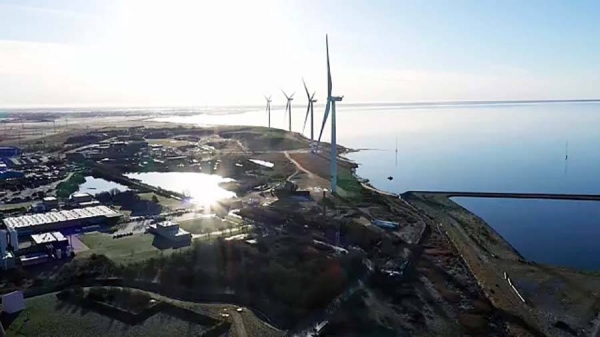
A catastrophic lack of US foreign policy coherence combined with reluctant engagement in the Middle East and North Africa has created a landscape teeming with geopolitical and regional tensions. New and old rivals are almost tripping over each other to carve out spheres of influence everywhere from Libya to the eastern Mediterranean, the Horn of Africa and even the Sahel.
Worse, this mad dash to divvy up parts of North Africa is not in service of noble goals such as the region’s security, stability and prosperity. It is geopolitical chess — the strategic maneuvering of countries repositioning themselves in a fast-changing world that no longer measures strength by the might of arms but by the weight of influence in far-off capitals.
Before the transactional diplomacy of the Trump era, Washington had for decades occupied near thankless roles as mediator, negotiator and security guarantor of last resort — leveraging its economic heft, military might and soft power to prevent the region from descending into the chaos of endless conflict. However, energy independence and a US electorate exhausted by Washington playing the world’s policeman — while adversaries such as China and Russia benefited — led to a shift in US foreign policy priorities.
These realities had already set in during the Clinton White House of the 1990s. In fact, without 9/11, America would have largely withdrawn from the region save for a few strategic zones mostly to bolster its naval capabilities or keep a check on belligerent adversaries. Essentially, America had already began paying less attention to the region, which proved woeful, especially with the War on Terror. Such an ambitious undertaking required maximum US attention to the region, and in its absence the War on Terror failed miserably — spawning even more troubles than it aimed to solve.
The Obama administration attempted to solve this dilemma by sharing the burden of the region’s stability and security among its allies and regional partners, while also slowly drawing down a heavy US presence as pragmatically as possible. It was a bold attempt to reverse the binary perception that the US either stayed for good —perpetuating an uneasy calm — or left permanently, dooming the region to intractable chaos.
The jury is out on whether “leading from behind” actually worked, or merely sowed new troubles that the region is now reaping. Nonetheless, US foreign policy between 2009 and 2016 will certainly be revisited with a fine-tooth comb as the region tried to divine what a Biden administration will attempt to accomplish.
There are already numerous projections about what shape Biden’s foreign policy will take, and advice on what it should prioritize. Interestingly, these narratives tacitly acknowledge Washington’s lack of interest in further expansions of its footprint abroad. There is almost a bipartisan consensus that affairs in the Middle East and North Africa will be conducted via renewed engagements with regional partners or allies.
For the White House to make any progress will require compartmentalizing each hotspot and building consensus from common interests rather than a mix of aggression, escalatory rhetoric, boredom and disengagement of the past four years.
Hafed Al-Ghwell
North Africa remains a secondary interest in the White House. However, given the proximity of Morocco, Tunisia, Algeria and Egypt to hotspots such as Libya, and shared borders with the Sahel, the White House should take care not to dismiss their concerns and instead acknowledge their input as stakeholders who are qualified and knowledgeable, with vested interests in finding the best paths forward. After all, the past two decades have proved that war, drone diplomacy and even simply walking away are not sustainable means to securing US policy goals.
The most visible changes in the Biden administration’s North Africa policy will be relations between Washington and Cairo. Egypt’s role and importance has diminished, supplanted by the Gulf states, Israel and Turkey. US Democrats see Egypt as less important, especially from a counterterrorism policy perspective. President Abdel Fattah El-Sisi’s authoritarian rule will simply encourage more radicalization, making it counterproductive to engage with Cairo on counterterrorism operations. The White House may suspend annual US funding to Egypt as a way to pressure Cairo to curb human rights violations and back away from any impossible demands over Libya, or in the dam dispute with Ethiopia. If Egypt does not want to be disadvantaged in the eastern Mediterranean, Libya and with Ethiopia, major adjustments will need to be made as soon as possible.
For the rest of North Africa, continuity will probably remain the central focus of US policy — heavy on counterterrorism and influenced by geopolitical rivalries with Moscow and Beijing. The Biden administration would sooner take a back seat while Europe leads efforts at addressing the systemic social, political and economic problems that destabilize the region and threaten EU interests.
What this means for the Libyan conflict — the primary focus of North African countries — is that Washington will play only a background role. A rejuvenated State Department will continue pushing for dialogue between allies and their interlocutors on both sides of the conflict, lending greater support to the UN Special Mission in Libya.
Additionally, the Biden administration has the potential to deliver a missing key component in the resolution of this conflict — corralling Brussels, Paris, Berlin and Rome around a more coherent Libya policy, even if it is just to deter Russia"s deepening entrenchment in the Sirte/Jufra oil crescent.
The other half of US Libya policy under the Biden administration will focus on engaging with the many states that have waded into the conflict. The president-elect has already warned he will not tolerate further unilateralism, challenges to US interests, human rights violations and destabilizing the UN peace process. In response, the next 60-70 days will probably see shifts and realignments in Libya as countries entrench themselves to preserve gains and claim seats at the now inevitable negotiating table.
For the White House to make any progress will require compartmentalizing each hotspot and building consensus from common interests rather than a mix of aggression, escalatory rhetoric, boredom and disengagement of the past four years. The most troubling exercise, however, would be trying to craft meaningful policy from the inter-connected conflicts spanning North Africa and the eastern Mediterranean all the way to the Gulf region. Thus, unlike previous administrations, Biden’s foreign policy will have to work backwards — examining each problematic area closely, tailoring solutions for them and then formulating a broader regional policy based on achievable goals rather than idealistic pontification.
Ultimately, the next four years will establish the trajectory of US foreign policy for the foreseeable future — one that no longer seeks admiration and deference from sycophantic friendships, or sows needless enmity.
Hafed Al-Ghwell is a non-resident senior fellow with the Foreign Policy Institute at the John Hopkins University School of AdvancedInternational Studies. He is also senior adviser at the international economic consultancy Maxwell Stamp and at the geopolitical risk advisory firm Oxford Analytica, a member of the Strategic Advisory Solutions International Group in Washington DC and a former adviser to the board of the World Bank Group. Twitter: @HafedAlGhwell
Disclaimer: Views expressed by writers in this section are their own and do not necessarily reflect Arab News" point-of-view










